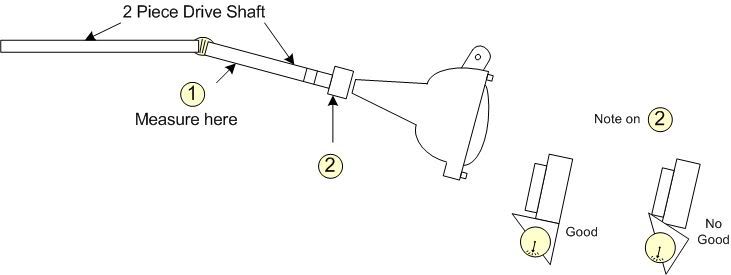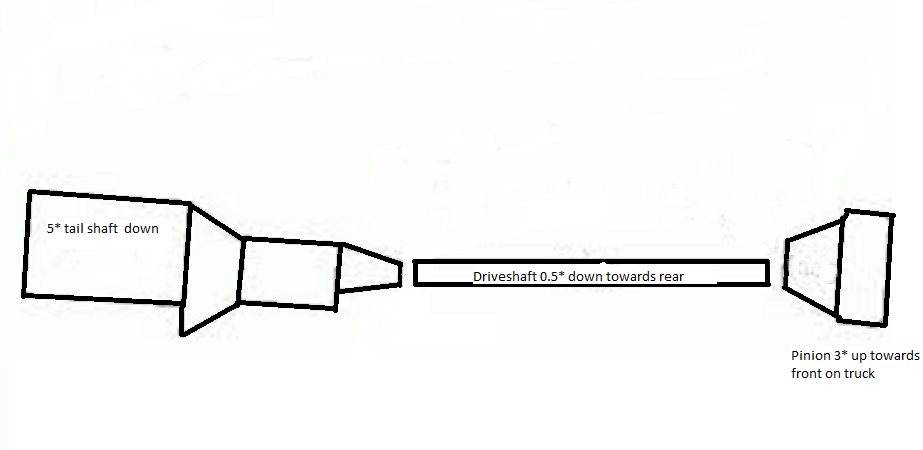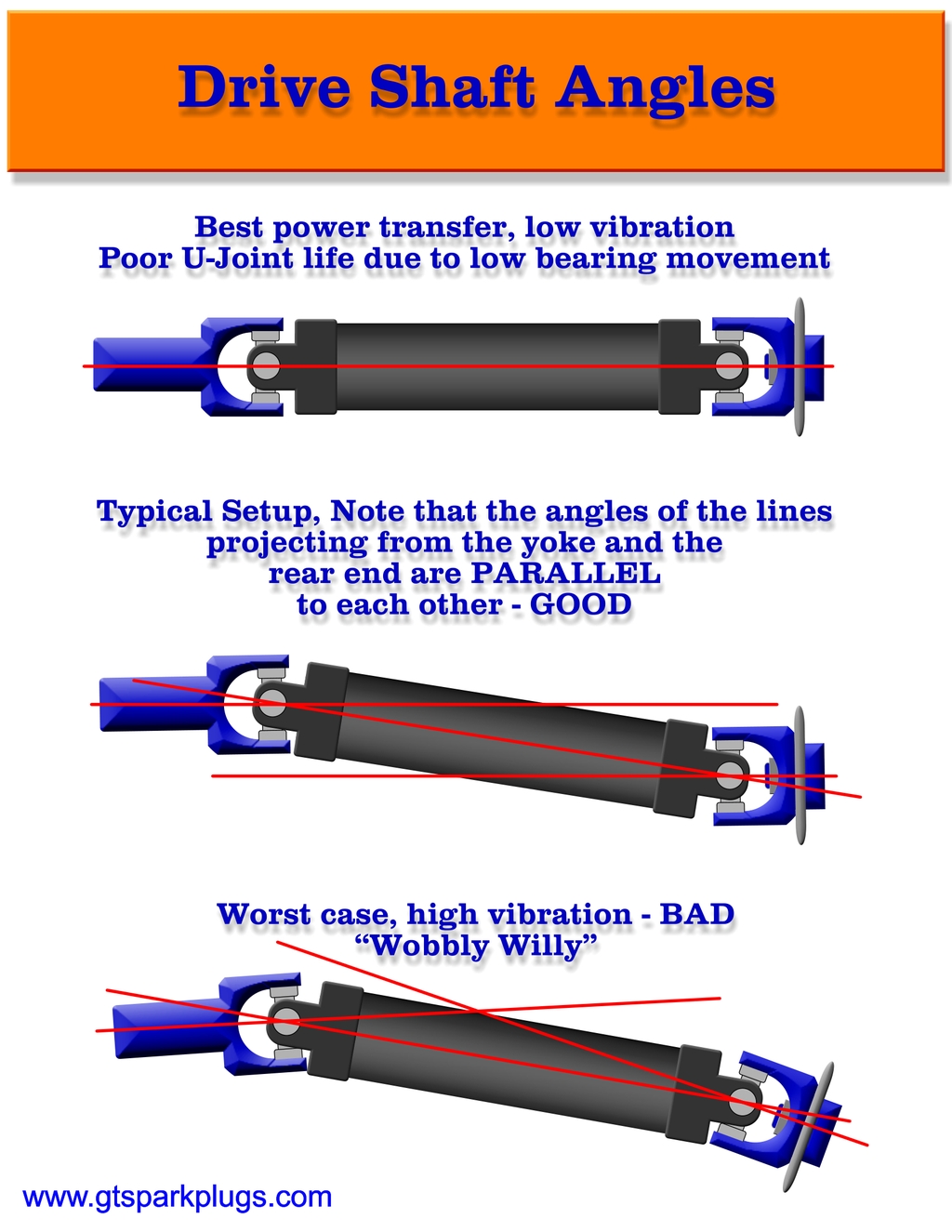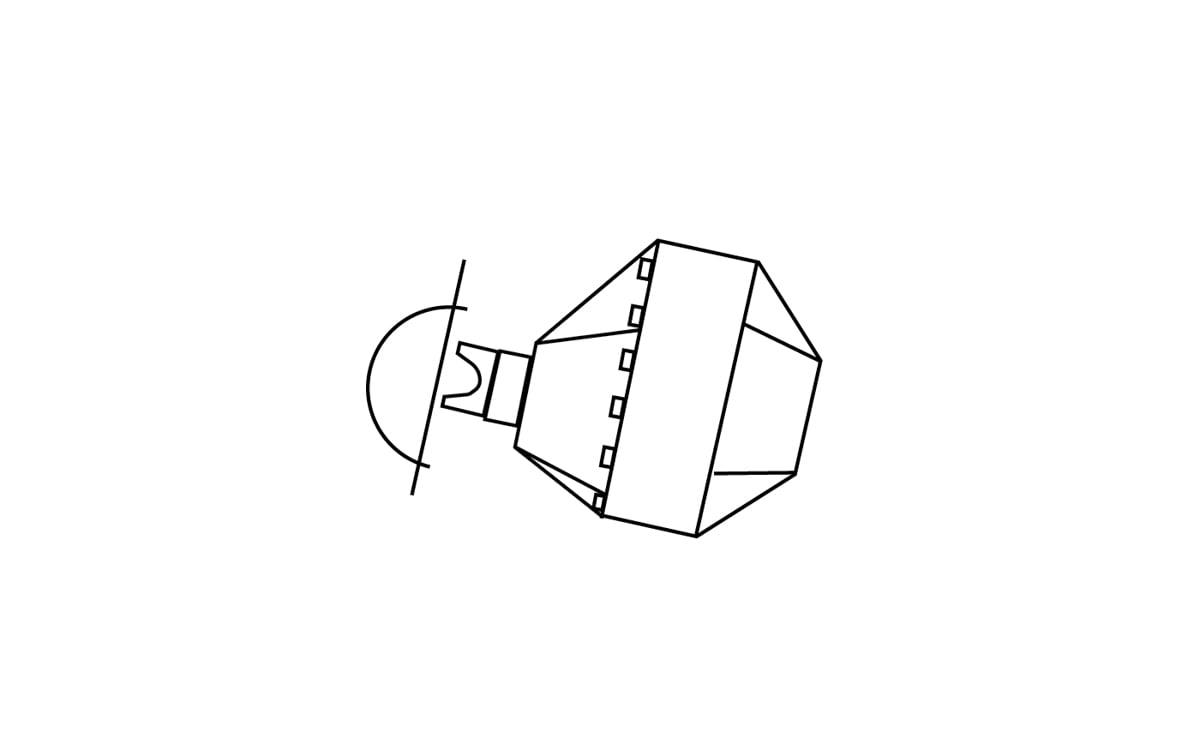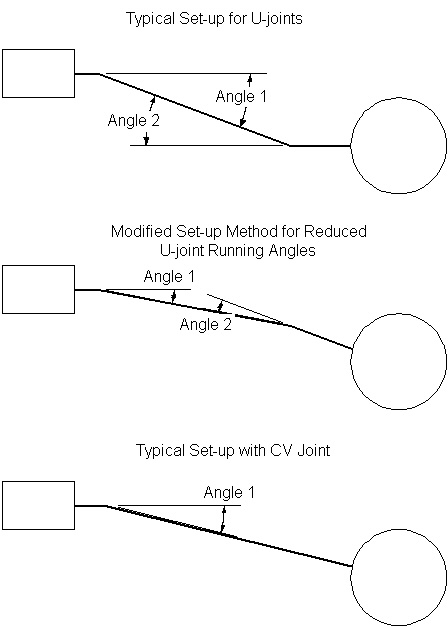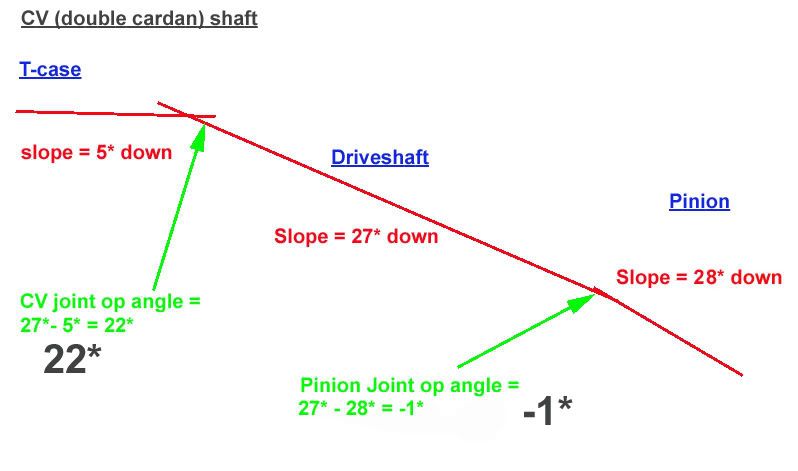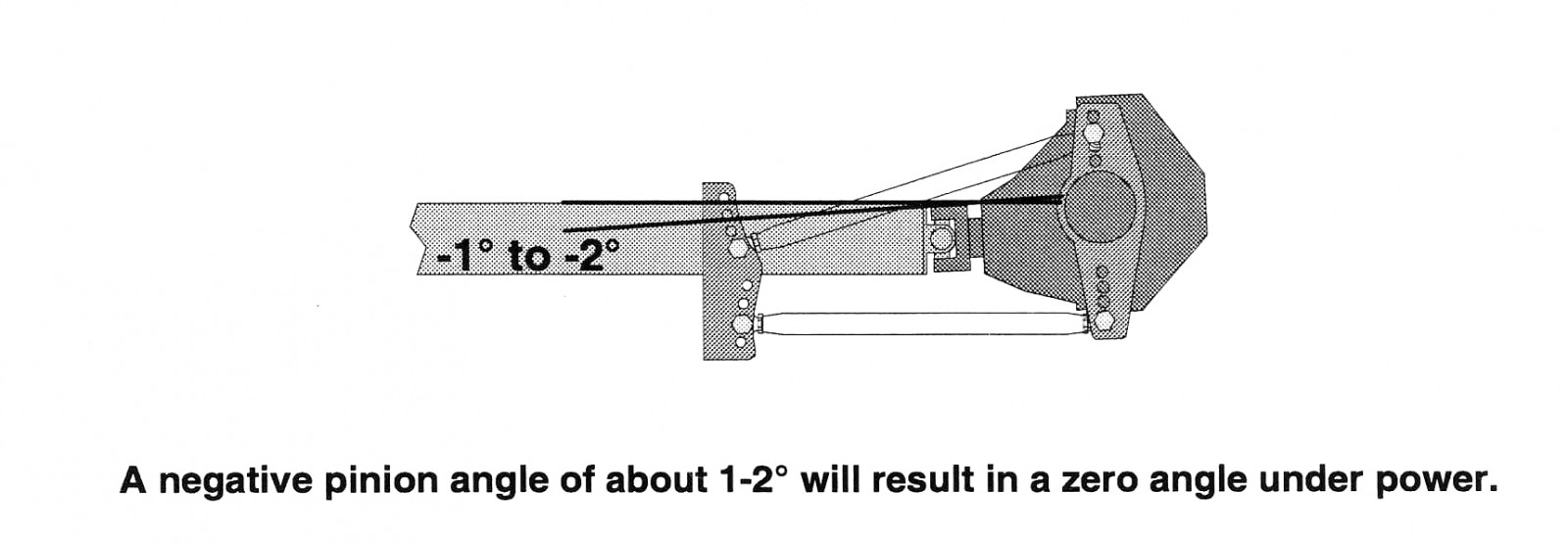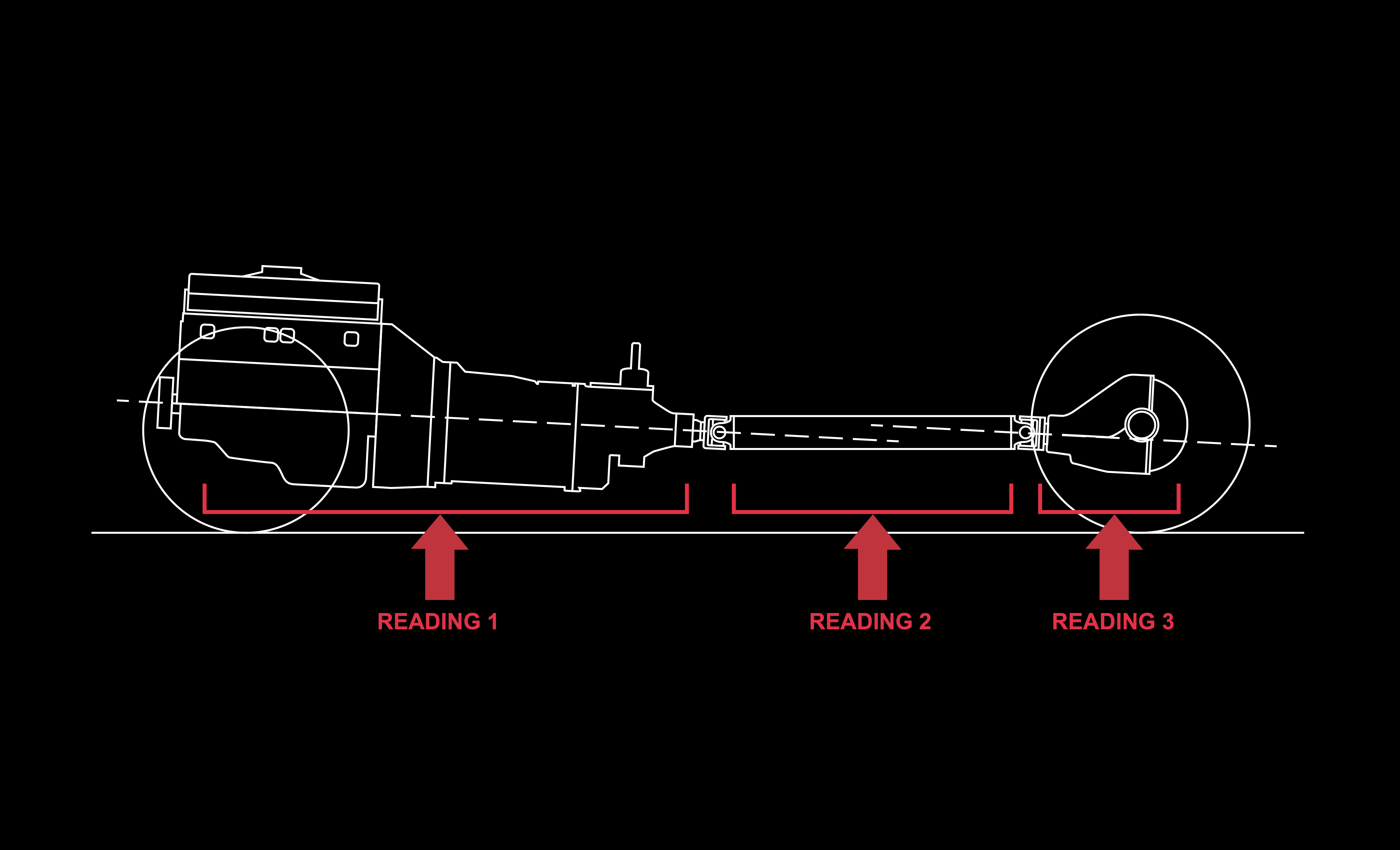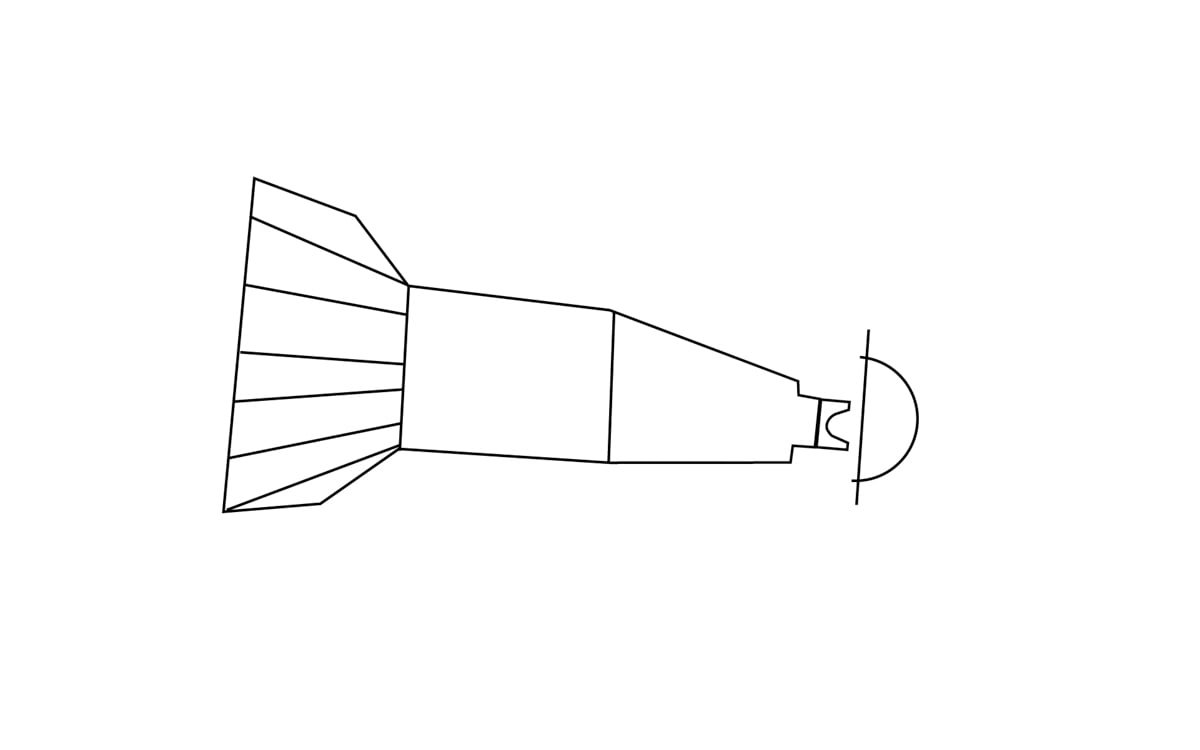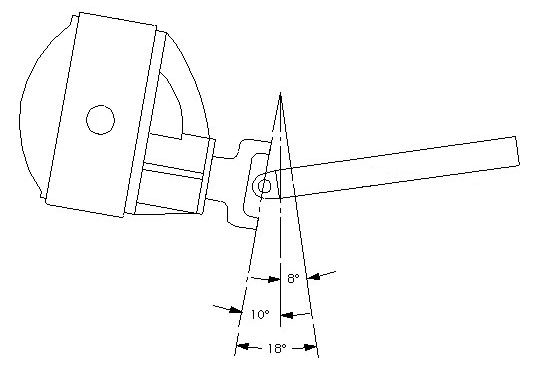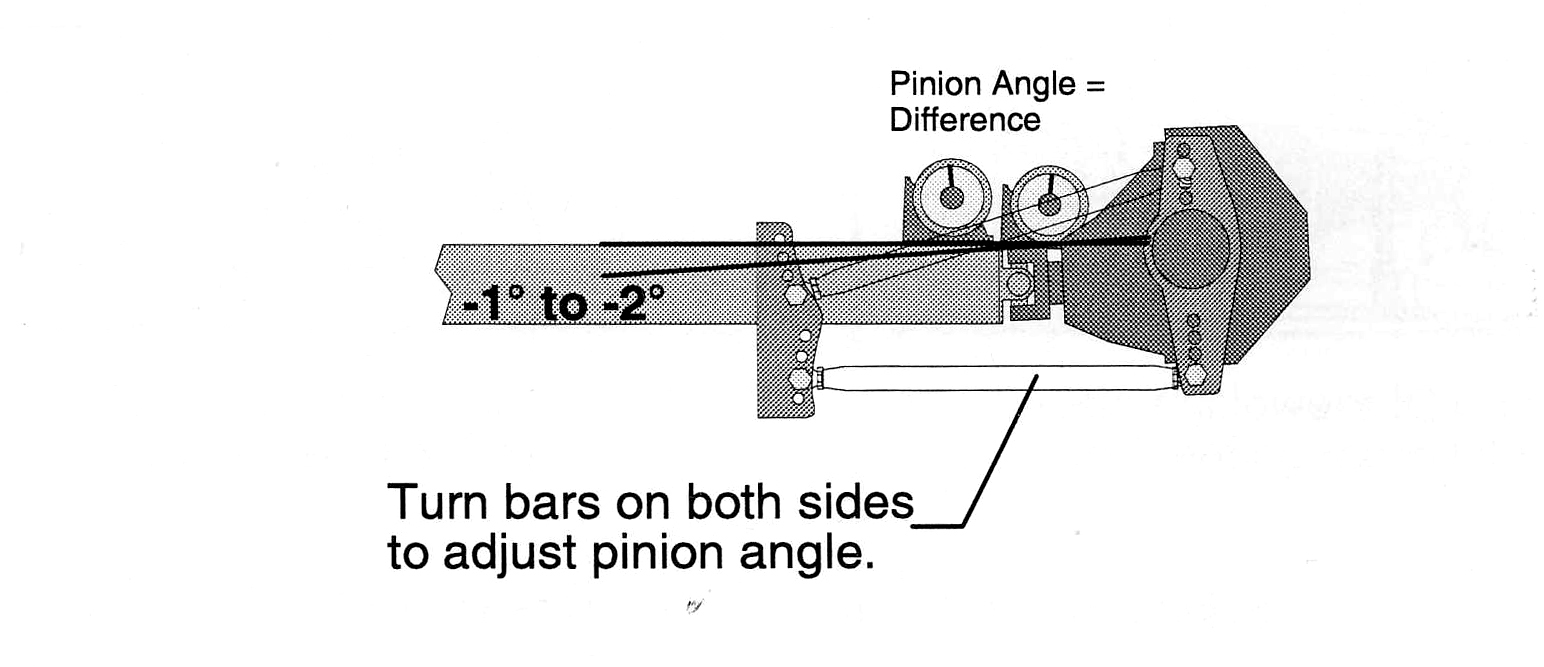The front angle can be altered by adding or removing shims from under the transmission mount. This is referred to as 2 degree negative pinion angle.

Driveshafts Amp Pinion Angles
Setting pinion angle without driveshaft. The angle of the rear u joint can be altered by installing a tapered shim like these between the leaf spring and the axle. You can alter the rear end pinion shaft angle by inserting or removing wedge shaped shims under the rear spring mounts or by adjusting the length of the control arms positioning the rear end. Set the angle finder on the face of the yoke where the u bolts go through. If the angle of the rearend is steeper than that of the driveshaft subtract the angle of the driveshaft from that of the rearend to see how much positive pinion angle you have. Having visited many forums and web sites the general consensus for setting up the pinion angle on a traditional setup with the crankshaft center line level or slightly down and the pinion lower than transmission output shaft would be 12 to 2 down in a four bar situation. The goal is to create a straight line from the back of the crankshaft through the transmission driveshaft and the pinion of the.
When the vehicle is resting on its suspension make the pinion parallel to the transmission as a base line then tip the pinion downward 2 degrees for a street car. Rotate the pinion so that the ujoint caps on the yoke are pointing up and down. Setting the pinion angle is the final step in driveline alignment. Ideally the transmission angle and the pinion angle will be parallel and the resulting driveshaft operating angles will be within 1 degree of each other to cancel out torsional vibrations produced by the u joints. At least 1 degree and ideally not more than 3 degrees up. Wayne great article and reiteration how important pinion angle is in a performance vehicle.
For example if you have a rearend angle of 5 degrees from vertical nose up and the driveshaft is angled up at 3 degrees you have 2 degrees of positive pinion angle. You can simply adjust the numbers in the calculator to see where you need to add or remove shims.
